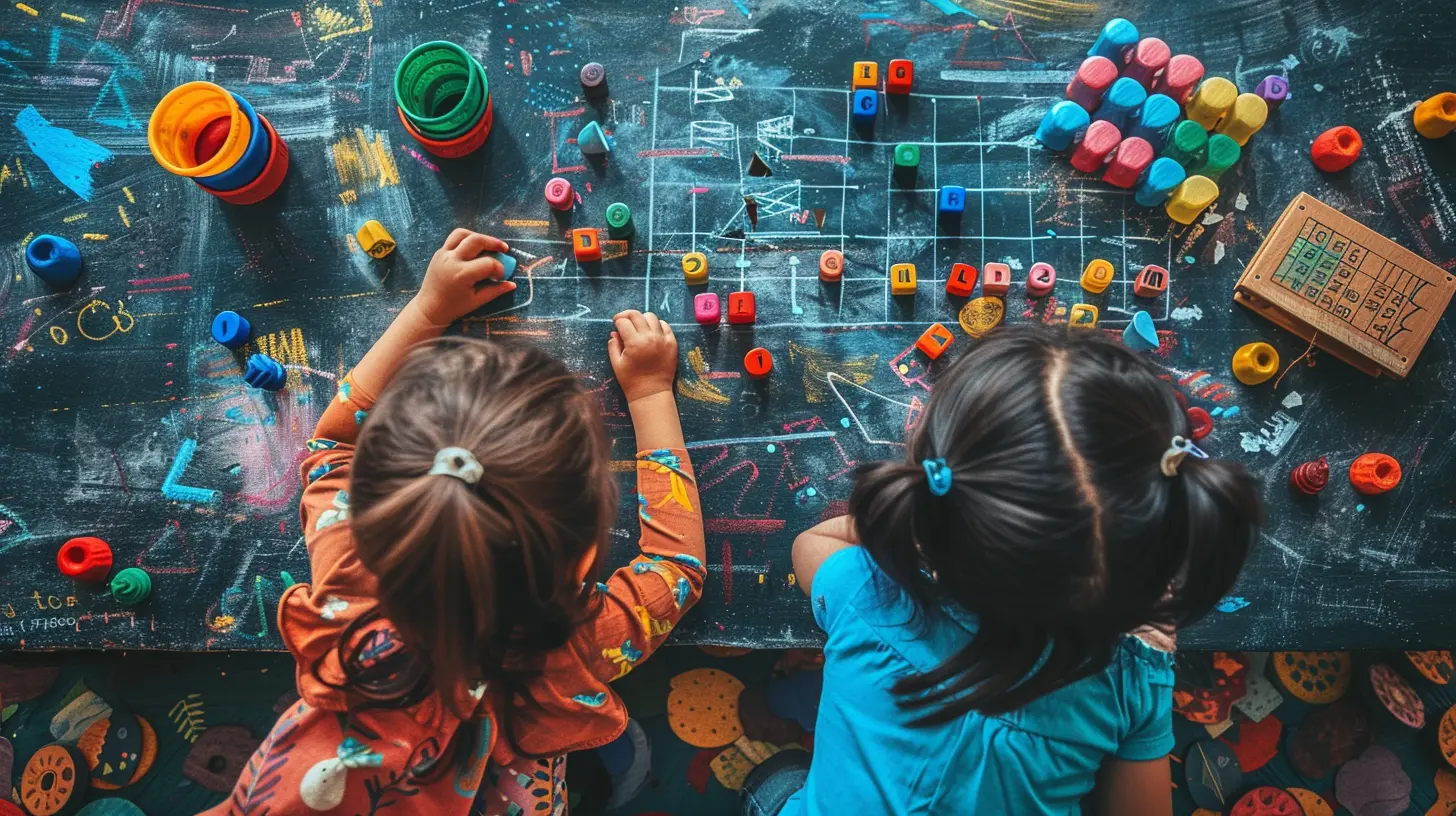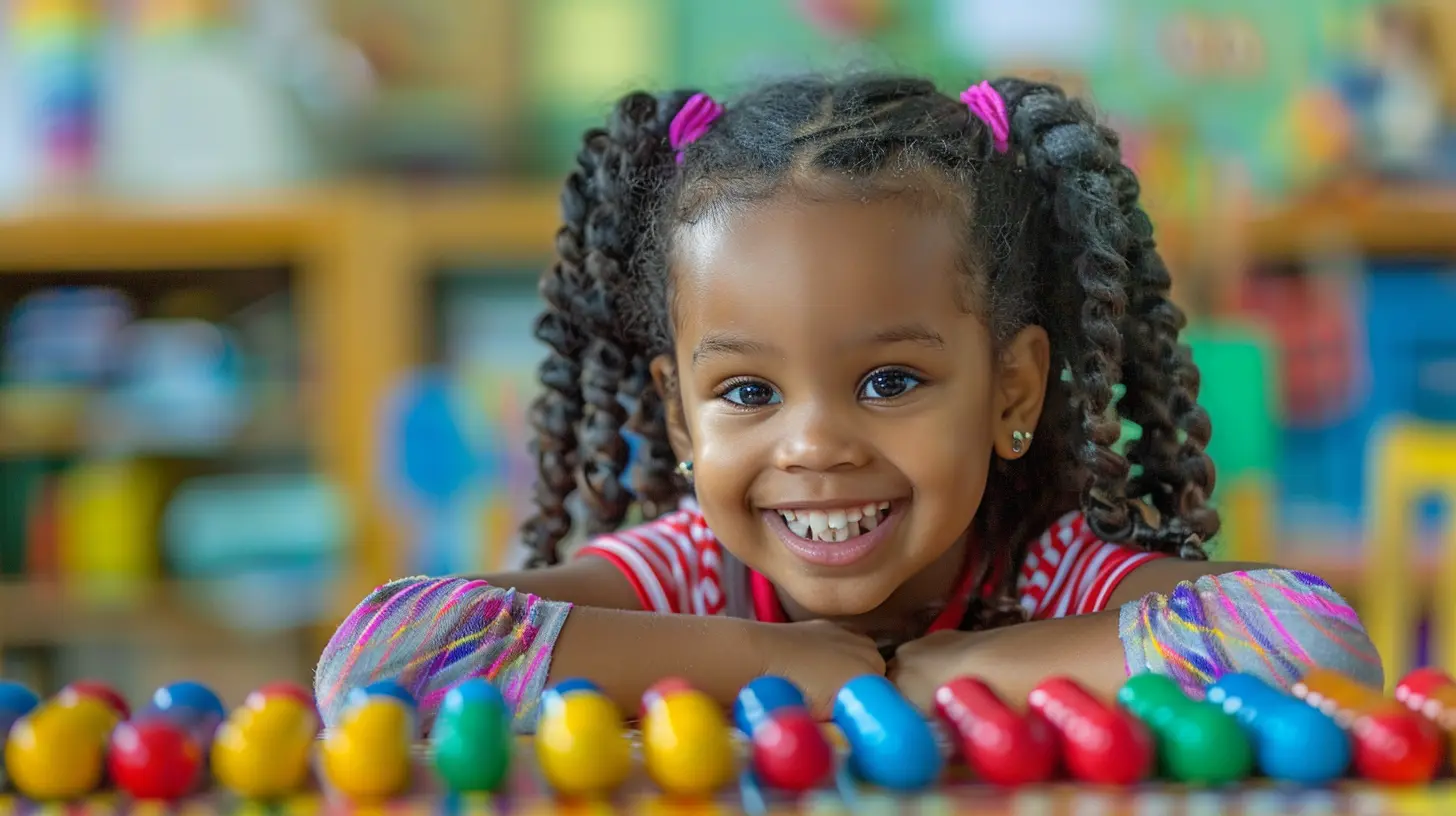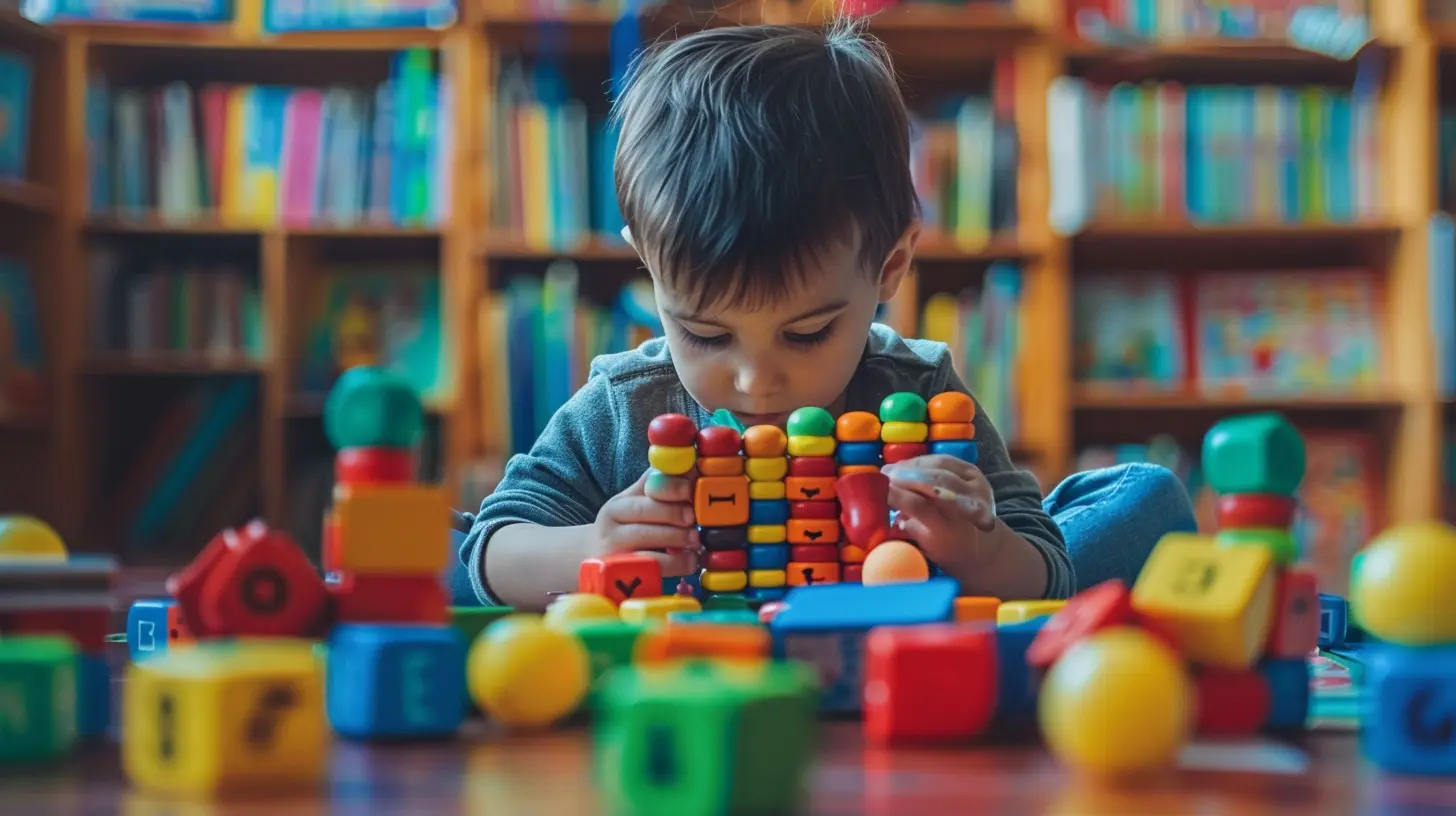The Importance of Number Sense in Early Childhood Education
14 October 2025
Let’s talk about numbers—but don’t worry, you won’t need your calculator for this one!
You see, when we talk about early childhood education, there’s a lot of buzz around reading, writing, and "circle time." But math? It often gets shuffled to the back of the classroom like that one kid who’s always got mystery goo on their hands. And that’s a shame, because here's the thing: number sense is a big deal.
Yeah, I said it. A really big deal.
It’s not just about counting to ten while hopping on one foot (although, hey, bonus points for coordination). Number sense is the magical math mojo that helps kids make sense of the world around them—literally.
So buckle up, friend. We're diving head-first into the wild and wonderful world of number sense and why understanding it early on is crucial for little learners.
What On Earth Is Number Sense, Anyway?
Think of number sense like a kid's "math instincts."It’s the ability to understand numbers, recognize patterns, estimate amounts, and grasp the relationship between numbers without needing to pull out the abacus. It’s not about memorizing facts like a robot. Nope, number sense is all about flexibility, intuition, and confidence with numbers.
Here’s the juicy part: a child with strong number sense can look at a group of objects and just know how many are there—or approximate without counting each one like they're checking off a grocery list.
It’s math without panic. Math without tears. Math that just...makes sense.
Why Is Number Sense So Important in Early Childhood?
You may be thinking: “Alright, cool. But why does my preschooler need to be a mini mathematician?”Because math is everywhere.
Seriously. Numbers are sprinkled throughout a kid’s day like confetti.
From splitting a cookie in half (fairness war avoided!) to figuring out how many blocks will fit in a line, kids are constantly encountering real-life math situations.
Let me put it this way: Giving a child number sense is like handing them a secret toolbox. It helps them:
- Make sense of quantity
- Understand size, space, and order
- Build logical thinking
- Solve problems better
- Gain confidence in their smarts
And here’s the kicker—research has shown that number sense in early childhood is a strong predictor of future success in math. That’s right. Mastering numbers early on helps kids avoid the dreaded “I’m not good at math” mindset later in life.
The Building Blocks of Number Sense
Imagine number sense like a giant LEGO set (but with fewer pieces for you to step on). It’s built from several key concepts:1. Counting and Cardinality
This is the ability to count things in order and understand that the last number counted says how many there are. You know—1, 2, 3... tada! There are three ducks in the bathtub.2. Number Recognition
Before kids can do anything with numbers, they need to recognize them. Like how they recognize their favorite cereal box from across the store.3. Comparing Numbers
Bigger, smaller, more, less—these comparisons help kids understand relationships between numbers. (And also help them argue about who got more juice.)4. Subitizing (Fancy Word Alert!)
Say what now? Subitizing is the ability to look at a small group of things and instantly know how many there are without counting. Think of recognizing that there are 3 buttons on a coat without pointing to each one—boom, math magic!5. Basic Operations
Add, subtract, repeat. When kids start playing with combining or separating groups of objects, they’re setting the stage for future arithmetic without even realizing it.
How Do Kids Develop Number Sense?
Spoiler: it doesn’t involve flashcards or math drills.Kids learn best through hands-on, real-world play. Think blocks, puzzles, sorting games, and storybooks with numbers. Basically, if it involves fun, they’re in.
Let’s look at some ways this happens naturally:
Through Play
Nothing fancy here. Just good ol’ playtime.- Counting out loud during hopscotch or hide-and-seek
- Stacking blocks and noticing when one tower is taller
- Sorting toys by color, size, or shape
- Playing board games that involve moving a certain number of spaces
Without even knowing it, kids are flexing their math muscles.
Through Everyday Tasks
Math is lurking everywhere in your daily routine. It's like the ninja of learning.- Measuring ingredients for a snack
- Folding laundry and sorting socks
- Counting steps to the mailbox
- Talking about the time ("How many minutes until bedtime?")
Each interaction is a golden opportunity to sneak in a little number-talk.
The Role of Adults in Building Number Sense
Let’s be real—kids don’t magically learn number sense just by osmosis. Adults (that’s you!) are the secret sauce.Here’s how we can help:
Ask Open-Ended Questions
Instead of “What’s 2 plus 2?” try “How many ways can we make 4?”You’ll get a peek into their thinking and encourage deeper understanding.
Encourage Math Talk
Even if you’re not a math person (math-anxiety sufferers, raise your hands), you can still model a positive attitude.Talk through problems aloud. Use number words casually. Celebrate mistakes as learning moments. Just keep it light and supportive.
Provide Hands-On Materials
You don’t need pricey educational toys. Use what you’ve got—buttons, cereal, paperclips, whatever.Think of it as using kitchen junk to make math magic.
Common Misconceptions About Early Math Learning
Let’s bust a few myths while we’re at it, shall we?“They’ll learn math in school.”
Yes, but early exposure builds strong foundations. Waiting means playing catch-up.“Reading is more important in the early years.”
Both are important. Language and numeracy develop side-by-side. In fact, early math skills are often better predictors of later success than early reading skills. (Bet you didn’t see that coming!)“My child just isn’t a math person.”
Ah, the classic excuse. But here’s a secret: math isn’t a talent, it’s a skill. And skills can be taught—especially when they’re wrapped in fun and joy.Warning Signs of Weak Number Sense
It's helpful to know if a child is struggling so you can jump in and support early. Some signs include:- Difficulty counting correctly or skipping numbers
- Trouble comparing which number is bigger or smaller
- Confusion with number symbols (thinking the number 5 is an S, for example)
- Avoiding math-related tasks altogether
No panic necessary—these are just signals that a little extra support could go a long way.
Fun Ways to Boost Number Sense at Home
Wanna sneak math practice into your kiddo’s day without a single complaint? Try some of these:Counting Everything in Sight
Seriously—count stairs, crayons, goldfish crackers. If it can be counted, go for it.Number Songs and Rhymes
“Five Little Monkeys” isn’t just catchy—it’s full of subtraction! (Not to mention drama.)Cooking Together
Fractions, measurements, and sequencing—cooking is like math in a mixing bowl.Math-Themed Storybooks
There are so many delightful books that weave in core number concepts. Bonus: reading together also makes the cuddly memories stick.How Schools Can Support Number Sense Development
In school settings, teachers can create math-rich environments where exploration and discovery reign supreme. They can:- Use manipulatives like counters, cubes, and shapes
- Incorporate math into art, music, and outdoor play
- Encourage group problem-solving activities
- Provide personalized support for different learning styles
All this builds confidence and keeps the math mojo going strong.
Final Thoughts: It's Not Just About Numbers—It’s About Understanding
Number sense in early childhood is more than a stepping stone for algebra down the road. It’s about helping kids understand how their world works.Whether it's sharing cookies, organizing toys, or planning how to spend their piggy bank savings, kids use numbers every day. The better they understand them, the more confident and capable they'll feel—not just in math class, but in life.
So let’s ditch the drills and make friends with numbers. After all, they’re not scary. They’re just another language—and one that every child deserves to speak fluently.
And hey, who knows? Those early lessons might just spark a lifelong love for learning. Or at the very least, help avoid a meltdown over why someone else got the bigger slice of pizza.
all images in this post were generated using AI tools
Category:
Math SkillsAuthor:

Bethany Hudson
Discussion
rate this article
1 comments
Andrea Cruz
In young minds, numbers weave, Foundations strong, they’ll believe. With each step, patterns dance, Nurturing skills, a vibrant chance.
October 22, 2025 at 12:01 PM

Bethany Hudson
Thank you for capturing the essence of early math learning! It truly highlights how foundational number sense fosters confidence and creativity in young learners.


